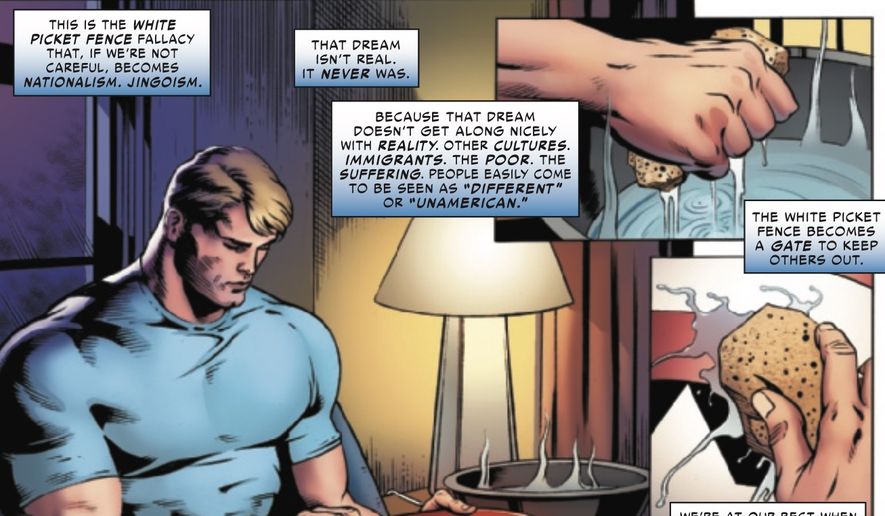Marvel Comics is celebrating Independence Day by having the iconic hero Captain America tell readers that the American dream “isn’t real.”
The first issue of “The United States of Captain America” by writer Christopher Cantwell sees Steve Rogers, the famous red, white and blue “Avenger,” lament the nation’s “white picket fence fallacy.”
“I’m loyal to nothing. Except the dream,” the character says. “Here’s the thing about a dream, though. A dream isn’t real. … I’m starting to think America actually has two dreams. And one lie. The first American dream is the one that isn’t real. It’s one some people expect to just be handed to them. And then they get angry when it disappears. When the truth is, it never really existed in the first place.”
The character then laments another marketed version of America that doesn’t really exist — one with “white picket fences.”
Instead, the character discusses an America that “doesn’t get along nicely with reality. Other cultures. Immigrants. The poor.”
“We’re at our best when we keep no one out,” the title character says at one point. “A good dream is shared. Shared radically. Shared with everyone. When something isn’t shared, it can become the American lie.”
Another point in the story features a character who, standing next to Captain America, suggests that Sam Wilson, a Black character, is more representative of all Americans.
“Wow, Sam Wilson,” the character says. “Two Captain Americas for the price of one. Can’t tell you how much it means to meet both of you. You fight for everyone. I mean … everyone.”
Marvel made similar headlines in July 2017 when it revealed Steve Rogers to be a secret agent for Hydra.
The company also riled conservative readers in February 2010 when it pitted the character against “angry White folks” at an apparent Tea Party rally.
A lewd message related to Tea Party activists was removed from future printings of the book and blamed on someone “in lettering and production,” the media watchdog NewsBusters reported at the time.
• Douglas Ernst can be reached at dernst@washingtontimes.com.




Please read our comment policy before commenting.